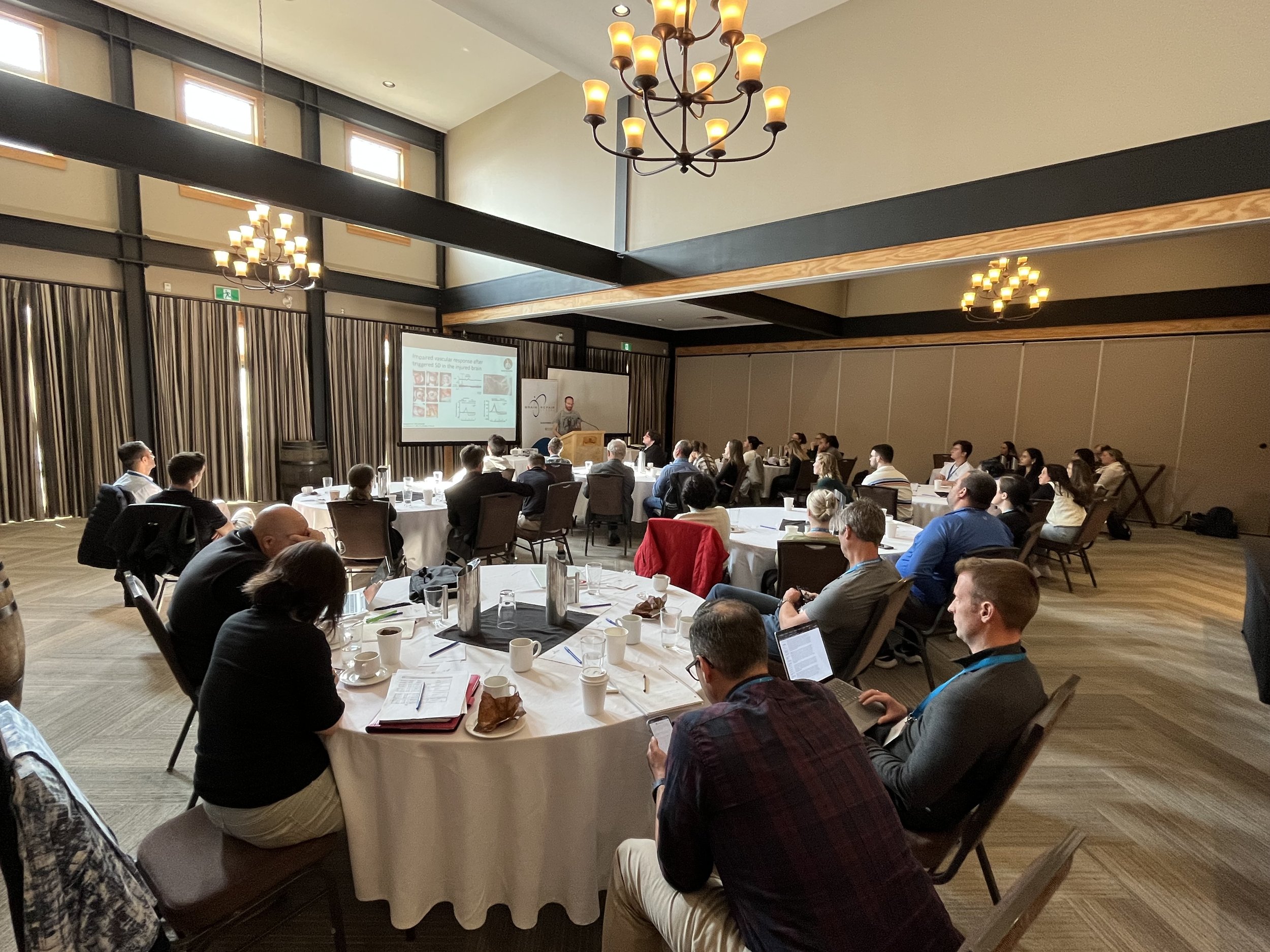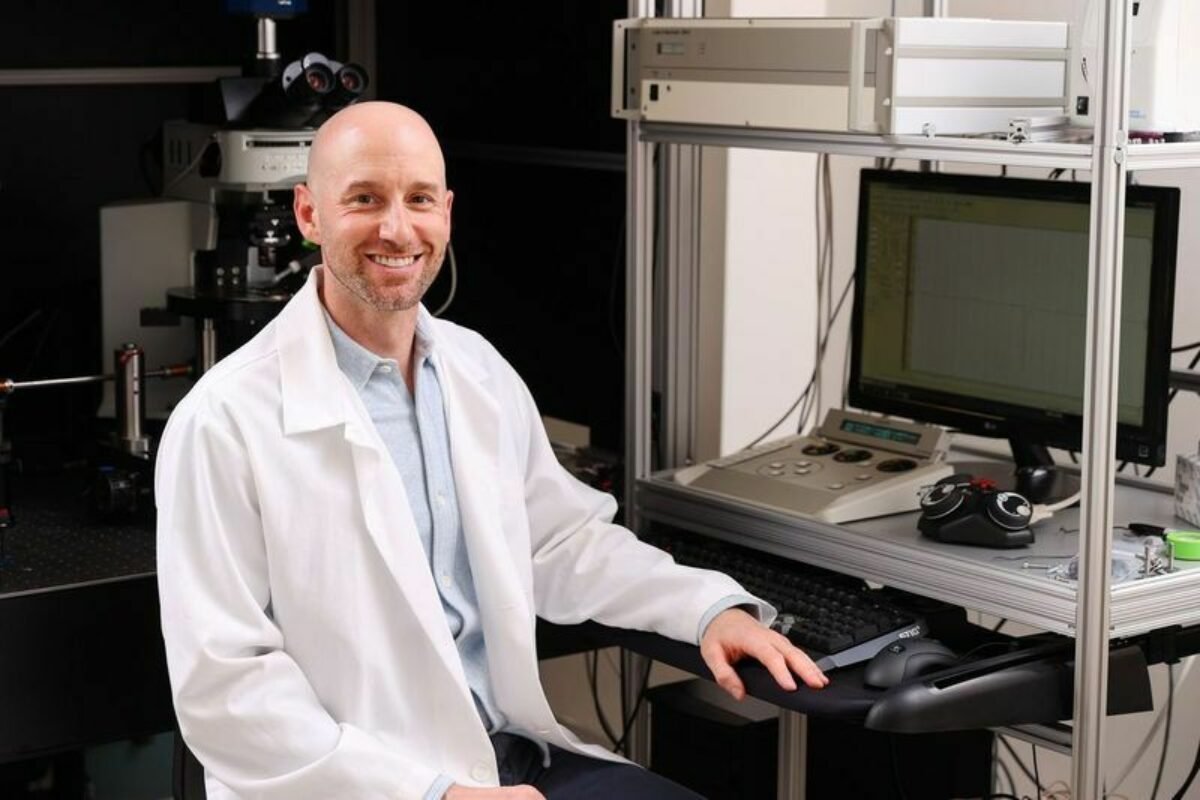-

Sunday 22/09
4.00pm Check-in
6.00pm Welcome Remarks
followed by Dinner7:00pm Guest Speaker - Dr Viviane Poupon, Brain Canada
8.30pm Entertainment
-

Monday 23/09
9.00am ECR Research Presentation
10:00 Panel Discussion
10:30am Coffee Break11.00am Session 3
12.30pm Lunch1.30pm Group Activities
5:45pm Group Photo
6.00pm Dinner
7.00pm Trivia & Entertainment -

Tuesday 24/09
9.00am Presenter Session 4
10.30am Coffee Break & Check-out
11.00am Presenter Session 5
12.30pm Closing & Lunch to Go
Guest Speaker
Dr Viviane Poupon, President and CEO of Brain Canada
“Engaging researchers from across Canada: Spotlight on Nova Scotia”
As Brain Canada’s President and CEO, Dr. Viviane Poupon is committed to addressing important gaps in the Canadian brain research landscape, especially in the areas of mental health research, platform support, capacity building through early-career funding, and talent retention. Her leadership has been integral to the foundation’s mission to accelerate, amplify, and fund brain research across Canada.
Dr Poupon’s tenure at Brain Canada has been marked by a focus on fostering partnerships and collaborations between research silos. Through her thoughtful guidance, Brain Canada is making significant strides in advancing our knowledge of the brain. With more than 100 partners and $300 million invested in brain research in Canada over the past 25 years, Brain Canada is the leading brain research funder and convenor in the country.
Dr Poupon’s professional background includes foundational roles in scientific development and partnerships. At The Neuro (Montreal Neurological Institute-Hospital at McGill University), she led major research initiatives and alliances, both domestically and abroad. She also played a key role in transforming The Neuro into an open science institute, in addition to serving as Chief Operating Officer at the Tanenbaum Open Science Institute.
Dr Poupon holds a PhD in Immunology from Université Pierre-et-Marie-Curie in Paris and is a graduate of the École normale supérieure – Paris. She is a strong advocate for open science and sex- and gender-based analysis in research.
Scientific/Career Presentation
Dr Corey Baimel
Assistant Professor, Department of Pharmacology, Dalhousie University
Started in 2023 by Dr Corey Baimel, the Baimel Lab at Dalhousie aims to understand the neural circuits that promote adaptive motivated behaviours. Using a combination of neuroanatomical tools, slice electrophysiology, optogenetics, fiber photometry and behaviour to examine synaptic connectivity, plasticity and neuromodulation of neural circuits that guide reward seeking.
Dr Baimel will present an introduction to his research at Dalhousie University, highlighting his experiences as an early-stage researcher. He will discuss how (and when) he secured funding for his research lab which includes funding from Brain Canada. Dr. Baimel's recent recognition as one of the 2023 Brain Canada Future Leaders in Canadian Brain Research underscores his commitment to innovative research and his potential for future contributions to the discipline.
Panel Discussion
A panel discussion following Dr Baimel’s presentation will focus on various pathways for academic
progression, including the importance of research funding and support for scholars at different stages
in their careers. Panel members are Dr Corey Baimel (PI), Dr Poupon (Brain Canada) and Dr Podor
(post-doc in Dr Rafuse’s lab). Attendees are encouraged to ask questions of the panel members.
Engaging with the panel not only fosters a deeper understanding of the topics discussed but also
encourages a dynamic exchange of ideas. This aim is to create an interactive conversation.
Panel members are prepared to provide insights, and share experiences.
Scientific Presentations
Presenters:
Name (PI - if applicable) Title
Daniel Saucier (Colleen O'Connell and Mathieu Bélanger) Environmental factors and amyotrophic lateral sclerosis in NB: A matched case-control study
Emily Thomson (James Fawcett) Delineating a role for NOS1AP isoforms in the developing rodent cerebellum
Griffen Wakelin (Adam Johnston) The role of Twist2+ interstitial cells in postnatal mouse myogenesis
Jack Guthrie (Vic Rafuse) Using human iPSC derived motor neurons to study ALS.
Jason McDougall Visual Exposure to Green Light Reduces Arthritis Pain
JJ Parker (Adam Johnston) Uncovering the Function of Schwann Cells in Chronic Non-Healing Diabetic Skin Wounds
Kenzie MacKinnon (Turgay Akay) Age-dependent deterioration of postural stability during locomotion and proprioceptive feedback’s role
Nitya Adepalli & Anna Nazarova (Rudolph Uher) Association of accelerated brain aging with developmental psychopathology in youth at familial risk for severe mental illness
Paige Reynolds (Ying Zhang) Characterization of ALS patient-derived iPSC Motor Neurons
Pooja Labana (Jim Fawcett) Characterization of the role of large tumor suppressor proteins (LATS1/2) in neuronal maturation
Shelby Squires (Joel Ross) Modelling Neurodevelopment in a Dish to Study the Movement Disorder Gene Pde10a
Will Urquhart (Colleen O'Connell) Effect of Language on Montreal Cognitive Assessment (MoCA) Performance
Xinrui Li (Turgay Akay) Uncovering the Role of Brainstem Circuitries in Regulating Spinal Cord Cross Reflex
Speaker Agenda (pdf)
Sessions Chairs:
Anna Nazarova
Paige Reynolds
Jack Guthrie
TRIVIA Organizer & MC
Daniel Saucier





